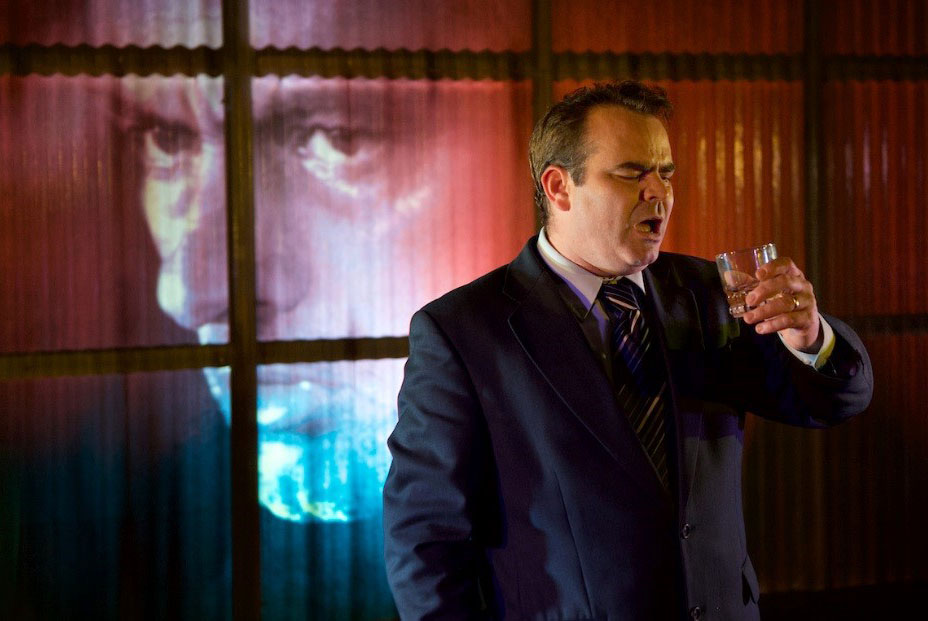
Brian Clough was a self-promoter of the first water: opinionated, radical and forthright in an, ’I’m nearly always right’, professional northerner, way. In another life he might have been a court jester, telling truth to power, but the twinkle in his eye was not of the, ’Put that in your pipe and smoke it’, kind, rather, ‘I should be king rather than you’. Charismatic and articulate at a time when neither quality was widely distributed amongst the footballing fraternity, he excited an interest which captured the public imagination well beyond the world of sport.
The play, a one act three-hander, strikes one as being a cri de cœur for the soul of football. On one side we have Clough, representing the ‘jumpers for goalposts’, fair play, winning the right way, spirit of the nation view of football, with, on the other side, Don Revie bearing the flag of the new professionalism, having winning at almost any cost being the apparent guiding principle.
Again we can see it as a study in the arrogance of an unquestioning self-belief – the aspect of Clough best revealed in Luke Dickson’s taut, swaggering performance of a driven man. As a character it is a dizzying amalgam: Clough the magician, the opinionated sod, the drinker, the loving son, the lover of the beautiful game, of Yorkshire, the boardroom pugilist with nowt but scorn equally for the internal politics off the pitch and the cynical foul on it.
On another view we can see it as play about a relationship, professional and personal, as two men of vastly different personalities are bound together in a common pursuit: the patient, supportive and unassuming nous of Peter Taylor (David Chafer) providing the important, vital, final piece in the jigsaw of Clough’s personality.
As a piece of theatre it is inevitably compromised by its ambition in trying to do all the above in a tad over an hour. The closest thing we get to a resolution is when Jamie Smelt’s coaching assistant delivers the somewhat cryptic view that Clough is rather more like Revie than he cares to admit.
Nina Dunn’s staging and clever use of back projection gives a sense of the thundering arena in which they all work and hence the way in which the sport can take over and consume – indeed fulfil – a life.
David Peace’s script resonates to the clang of home truths being hammered home in the bluffest of changing-room language and paints a convincing picture of a particular time and place.
I think I can describe it as refreshing to be part of an audience who clearly knew a lot more about the world of the play than I did, with a warm and ready appreciation of the way in which the game and its players are spoken of and dissected. In that respect it is certainly a play that can be recommended to anyone who cares about football certainly, but also sport in the widest sense. ★★★☆☆ Graham Wyles 6th June 2018

